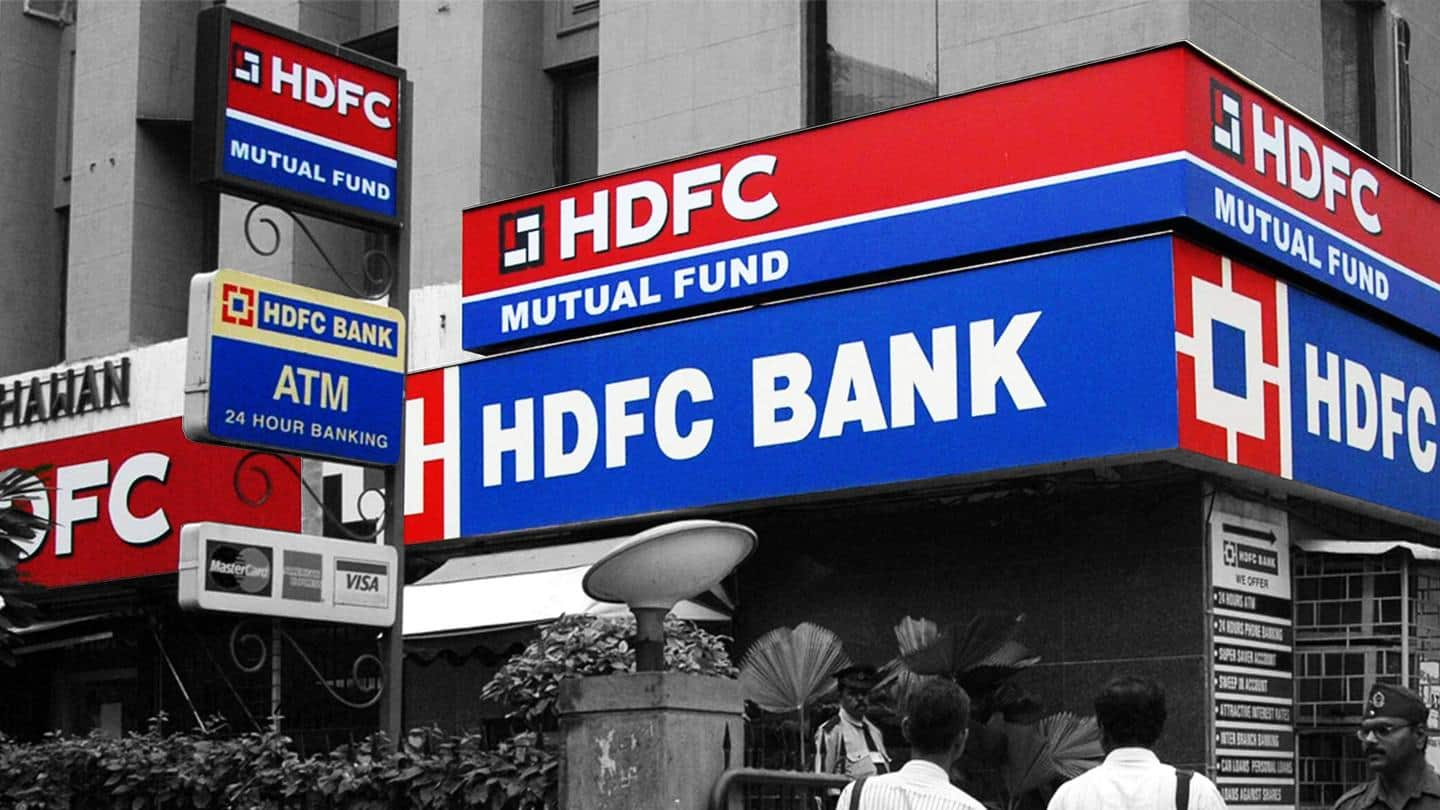
HDFC-HDFC Bank merger: Here's everything you need to know
What's the story
The merger between HDFC and HDFC Bank is finally a reality, with HDFC set to acquire a 41% stake in HDFC Bank, resulting in India's third-largest company by market capitalization.
HDFC announced in an exchange filing that it will merge with HDFC Bank after the union of subsidiaries HDFC Investments and HDFC Holdings.
HDFC Bank made a similar announcement in a separate exchange filing.
Context
Why does this story matter?
The merger will reduce HDFC Bank's ratio of exposure to unsecured loans and also help in strengthening its capital base.
It will further enable HDFC Bank to build its housing loan portfolio.
On the other hand, the biggest gain for HDFC will be access to well-diversified and low-cost funding, along with the enormous customer base of HDFC Bank.
Details
Merger to create a financial giant
Once the merger is completed, the combined entity will bring together the strengths of both companies.
The merger will create a financial behemoth with a loan book of Rs. 15 lakh crore and a Rs. 21.5 lakh crore asset base.
The combined business would also benefit from increased scale, comprehensive product offering, and balance sheet resiliency, HDFC said in the filing.
Reason
What is the rationale behind the merger?
HDFC has claimed that the merger would create meaningful value for stakeholders.
With the Reserve Bank of India's relaxation on affordable loans, the efficiency of the merger between HDFC's assets with that of HDFC Bank improved significantly.
Notably, as a wholesale financier, HDFC is more vulnerable to interest rate and liquidity volatility than HDFC Bank, thereby making the merged entity's funding profile more stable.
Benefits
Merger to reap various benefits
The merger will not only result in a more diverse loan portfolio, but it will also assist in meeting priority sector requirements.
The merged entity's capital efficiency will be higher because housing loans have lower risk weights than other retail loans.
Furthermore, HDFC Bank's growing capital needs can be met by selling small stakes in the group's other key businesses.
Information
Merger will also increase cross-selling opportunities, foreign holdings
Furthermore, HDFC has 77 lakh customers and approximately 21 lakh depositors. The merger would help in unifying the customer base and increase cross-sell opportunities for the bank as well as make room for more foreign holdings.
Shareholders
How will the shareholders benefit?
The shareholders of HDFC will get 42 shares of HDFC Bank for every 25 shares they hold.
Following the merger, public shareholders will own 100% of HDFC Bank, while existing HDFC Ltd. shareholders will own 41% of the bank.
Shareholders will also have an edge as the share prices will rise and the firms will be more profitable.
Market
Shares rose with the announcement of the merger
At 2:30 pm on Monday, HDFC Bank's shares were up 9.36% or Rs. 132.20 at Rs. 1,645.40 following the news of the merger.
HDFC, on the other hand, rose 8.08% or Rs. 198.10 to Rs. 2,650.00 at 2:30 pm.
Moreover, the HDFC twins currently have a combined market capitalization of Rs. 13,83,498.26 crore, which is higher than TCS's market capitalization of Rs 13,75,071.51 crore.
Information
Merger in discussion for some time
The merger between Housing Development Finance Corporation Ltd. and HDFC Bank has been in discussion since the merger of ICICI Bank and its parent company ICICI in 2001, with speculation that HDFC and HDFC Bank would follow in the footsteps of ICICI.